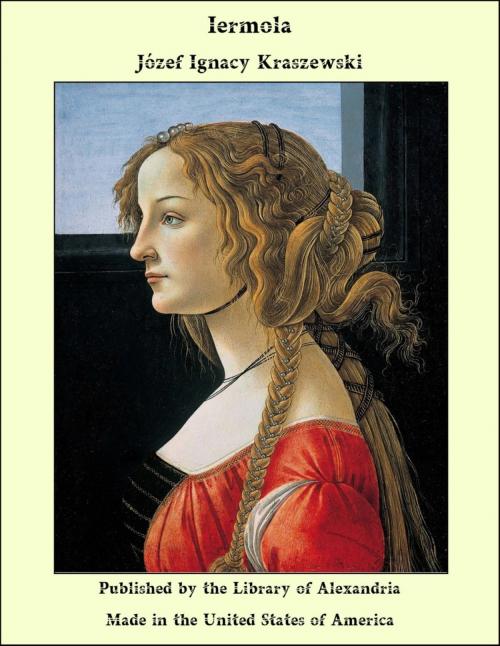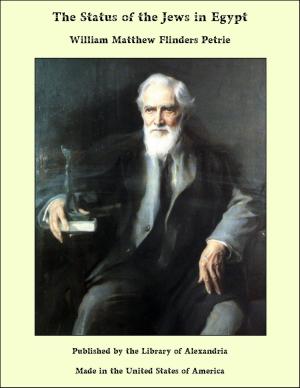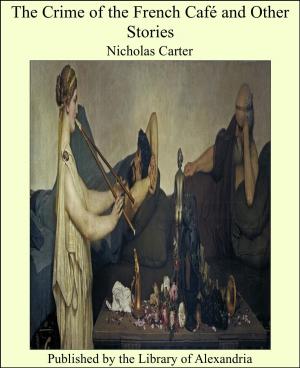| Author: | Józef Ignacy Kraszewski | ISBN: | 9781465589217 |
| Publisher: | Library of Alexandria | Publication: | March 8, 2015 |
| Imprint: | Language: | English |
| Author: | Józef Ignacy Kraszewski |
| ISBN: | 9781465589217 |
| Publisher: | Library of Alexandria |
| Publication: | March 8, 2015 |
| Imprint: | |
| Language: | English |
The events which are here related took place in Wolhynian Poland, in that little corner of the earth, happily overlooked, where up to the present time neither great highways nor roads frequented by carriages are to be seen,--a land remote, almost lost, where the antique modesty, simplicity, innocence, and poverty of past ages are still preserved. I do not mean by this to say that all human vices with burdens of sins upon their backs are always to be seen following in the footsteps of civilization along the great highways; but unfortunately there is always, between one social condition just ended and another which is beginning, a period of transition during which the old life is extinguished, and the new does not yet exist; and the result is indecision and sad confusion. That hour, which has already chimed for other nations and other provinces, has not yet sounded for this little nook of our land. Here people live, particularly in the dwors of the lesser nobles, according to the traditions of the sixteenth and seventeenth centuries, which have left upon the people the impress of their thought, their faith, and their manners. It is true that in those yellow-painted dwors belonging to the richer nobles certain reforms have been adopted and a few new customs are in use; but the mass of the lesser nobility are astonished and scandalized at these innovations. Can it be otherwise in this honest little corner of the earth, where the newspapers arrive in bundles once a month; where the sending and receiving of letters is managed only by means of the Jews who come to pass the Sabbath in the neighbouring town; where the whole business of the country, with the exception of some traffic in building timber, of which we shall speak farther on, is the breeding of livestock and the manufacture and sale of shoes made of bark? Some persons perhaps will find it difficult to believe that there still exists a spot on earth so remote and so behind the rest of the world; but it is really true that in the district of Zarzecze, in the environs of the marshes of Pinsk, not very long ago, there were still homes of nobles, whose occupants sometimes inquired of travellers for news of the health of King Stanislaus-Augustus, and were still in complete ignorance of all events which had taken place since the days of Kosciusko.
The events which are here related took place in Wolhynian Poland, in that little corner of the earth, happily overlooked, where up to the present time neither great highways nor roads frequented by carriages are to be seen,--a land remote, almost lost, where the antique modesty, simplicity, innocence, and poverty of past ages are still preserved. I do not mean by this to say that all human vices with burdens of sins upon their backs are always to be seen following in the footsteps of civilization along the great highways; but unfortunately there is always, between one social condition just ended and another which is beginning, a period of transition during which the old life is extinguished, and the new does not yet exist; and the result is indecision and sad confusion. That hour, which has already chimed for other nations and other provinces, has not yet sounded for this little nook of our land. Here people live, particularly in the dwors of the lesser nobles, according to the traditions of the sixteenth and seventeenth centuries, which have left upon the people the impress of their thought, their faith, and their manners. It is true that in those yellow-painted dwors belonging to the richer nobles certain reforms have been adopted and a few new customs are in use; but the mass of the lesser nobility are astonished and scandalized at these innovations. Can it be otherwise in this honest little corner of the earth, where the newspapers arrive in bundles once a month; where the sending and receiving of letters is managed only by means of the Jews who come to pass the Sabbath in the neighbouring town; where the whole business of the country, with the exception of some traffic in building timber, of which we shall speak farther on, is the breeding of livestock and the manufacture and sale of shoes made of bark? Some persons perhaps will find it difficult to believe that there still exists a spot on earth so remote and so behind the rest of the world; but it is really true that in the district of Zarzecze, in the environs of the marshes of Pinsk, not very long ago, there were still homes of nobles, whose occupants sometimes inquired of travellers for news of the health of King Stanislaus-Augustus, and were still in complete ignorance of all events which had taken place since the days of Kosciusko.















